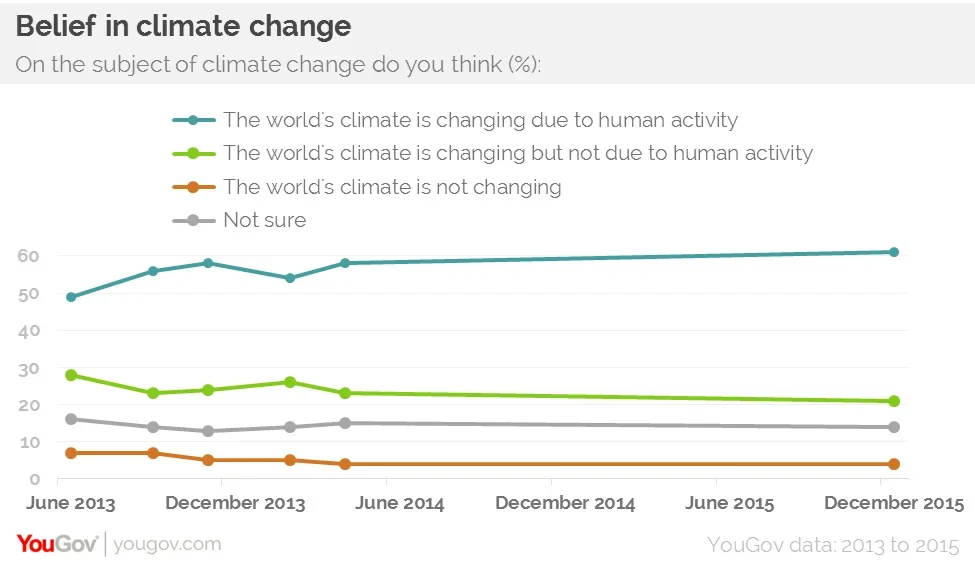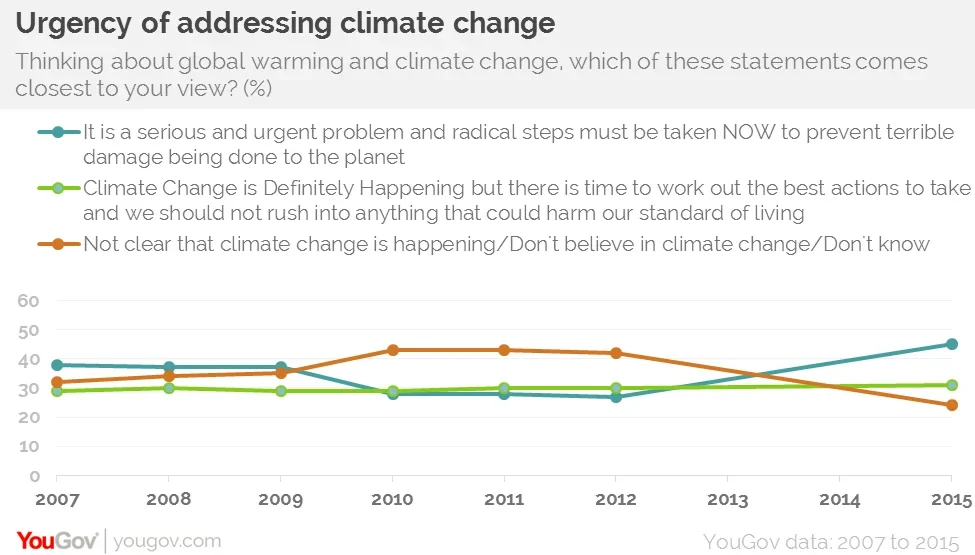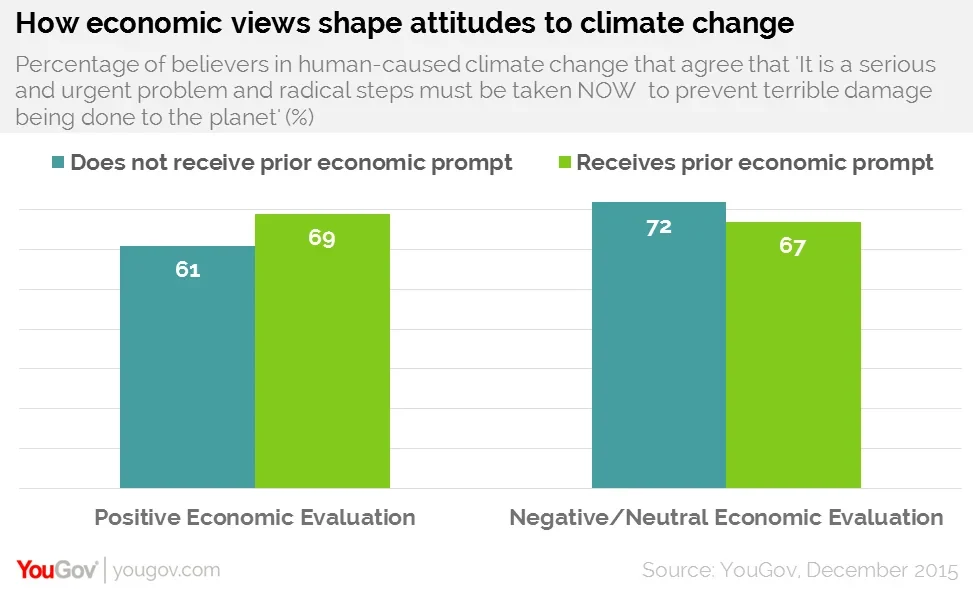What people think about climate change depends on how they feel about the economy
By John Kenny and Stephen Fisher, University of Oxford
An historic international agreement on climate change was unveiled earlier this month at the Paris COP21 conference. In a YouGov poll straight after the conference the British public were asked what they thought about climate change. 62% said they believe in human-caused climate change, up from 58% last year and from 53% when the current form of the question was first asked in 2013. While media coverage of both the Paris conference and the recent floods may have strengthened beliefs in climate change, the 2014 figures were also gathered in the aftermath of major flooding.

While most people believe humans have caused some change in the climate, only 45% believe that climate change is a "serious and urgent problem that requires radical steps must be taken NOW to prevent terrible damage being done to the planet". Although environmental activists believe many more should express such a view, 45% represents a higher level of concern about climate change than on previous occasions when YouGov asked the same question. Moreover, there has been a sharp reversal in what was a downwards trend from 38% giving the same response in 2007 to 27% in 2012.

The economic crisis has been suggested by some to have contributed towards the rise of climate scepticism and the decline in concern about climate change between 2007 and 2013. There's only so much people can worry about and fear of the costs of carbon reduction might lead people to deny the problem. Perhaps then climate scepticism is no longer rising because the economy is doing better?
This line of thinking suggests that those who think the economy is doing better should be more likely to believe climate change is caused by human activity and to think that it is an urgent problem. However, the opposite is true because Conservative voters are both more climate sceptic and more likely to think the economy is doing well. People generally are more likely to say the economy does well when their party is in power.
In an attempt to avoid the problems of politically motivated economic evaluations, we wondered whether simply being asked to think about the economic situation before being asked about climate change would be enough to change views on climate change. Respondents were randomly divided into two groups. One group was asked about the economy before climate change, the other was asked about climate change before the economy.
The order of the questions did not matter at all for reported beliefs in the causes of climate change, but it did affect the strength of concern among those who believe climate change is caused by humans.
Of those believers who thought the state of Britain's economy was quite good or very good, the proportion saying that climate change is an urgent problem was some 8 percentage points higher for the group that were asked about the economy first. But among those who did not think Britain's economy was in a good state, reported urgency was 5 points lower when respondents had to think about the economy first. Being reminded that they held a dim economic outlook led more climate change believers to say that "we should not rush into anything that could harm our standard of living."

These are fairly big differences given they are just as a result of question ordering. They suggest that attitudes to climate change are still relatively weakly held and subject to economic circumstances. Attempts to change people's views by presenting arguments about the costs and benefits of tackling climate change would probably have stronger effects than just asking people to reflect on the state of the economy. Future willingness of the British public to bear the costs of climate change mitigation might well depend on public debate about the economic consequences.
Climate change tracker results
Image from PA








